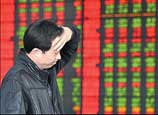
Lou Jiwei faces tasks of boosting spending on livelihoods as government's income growth slows
Lou Jiwei's appointment as China's new finance minister was viewed by many as a sign that more rapid reform is on the way for the nation's fiscal system, but the challenges he faces are much greater than those encountered by his predecessors.
Confidence in 62-year-old Lou comes from his rich working experience in the government's financial system and the impression he has made as a steady reformer.
Prior to his five-year term as the head of China Investment Corp, the country's $200-billion sovereign wealth fund, Lou was vice-minister of finance for nine years until 2007. He also participated in the design of the tax-sharing system between central and local governments in 1994.
Lou was among the first members of the State Council's economic reform research office established in 1986, when China took its first steps toward a market-oriented economy.
His colleagues back then, whose studies helped shape China's economic reform for the next two decades, included economist Wu Jinglian, central bank governor Zhou Xiaochuan and former top securities regulator Guo Shuqing.
Analysts say Lou's experiences as a "fund manager" equipped him with a global vision in formulating domestic fiscal policies. Meanwhile, his role in designing reforms will help accelerate the country's fiscal reform process.
But it will not be an easy journey. One of the major challenges Lou faces is the rising fiscal pressure resulting from surging expenditure amid declining fiscal revenue.
This issue was highlighted by Premier Li Keqiang at his first news conference after the annual session of 12th National People's Congress.
The central government's income grew just 1.6 percent year-on-year in the first two months of 2013, which was 10 percentage points lower than the same period in 2012. Li said the low growth rate was likely to last.
At the same time Li called for more fiscal expenditure to improve people's livelihoods, and stricter supervision of public spending on government operations.
Although China's public revenue expanded from 5.1 trillion yuan ($820.6 billion) to 11.7 trillion yuan over the past five years, Lou's first task after he took the post was to tighten his belt.
Facing the rising demands on public expenditure, Lou's previous statements suggested that he would attach more importance to areas such as building the social security system.
Central government spending accounts for 20 percent of China's public expenditure, while the average level of member countries of the Organization for Economic Cooperation and Development was 46 percent in 2009.
Xie Yaxuan, a macroeconomics analyst with China Merchants Securities, said Lou's move involves restructuring the relationship between central and local governments, and will be the key element of China's fiscal reform over the next five to 10 years.
"But this is also where most of the resistance is, so however determined he is, it is still unknown whether he could succeed," Xie said.
As for measures to boost the economy, Lou said investment would still play a key role in driving growth before China's demographic bonus fades away.
He said investment, especially in infrastructure, would account for a large part of domestic consumption in the coming years, in order to accumulate enough wealth and avoid China "aging before it becomes wealthy".
"When it comes to economic transformation, investors would think of less investment and more consumption. But with Lou's appointment, this process may be longer than we thought," Xie said.
















 Seeking a dream wedding at Beijing Wedding Expo
Seeking a dream wedding at Beijing Wedding Expo


![]()
